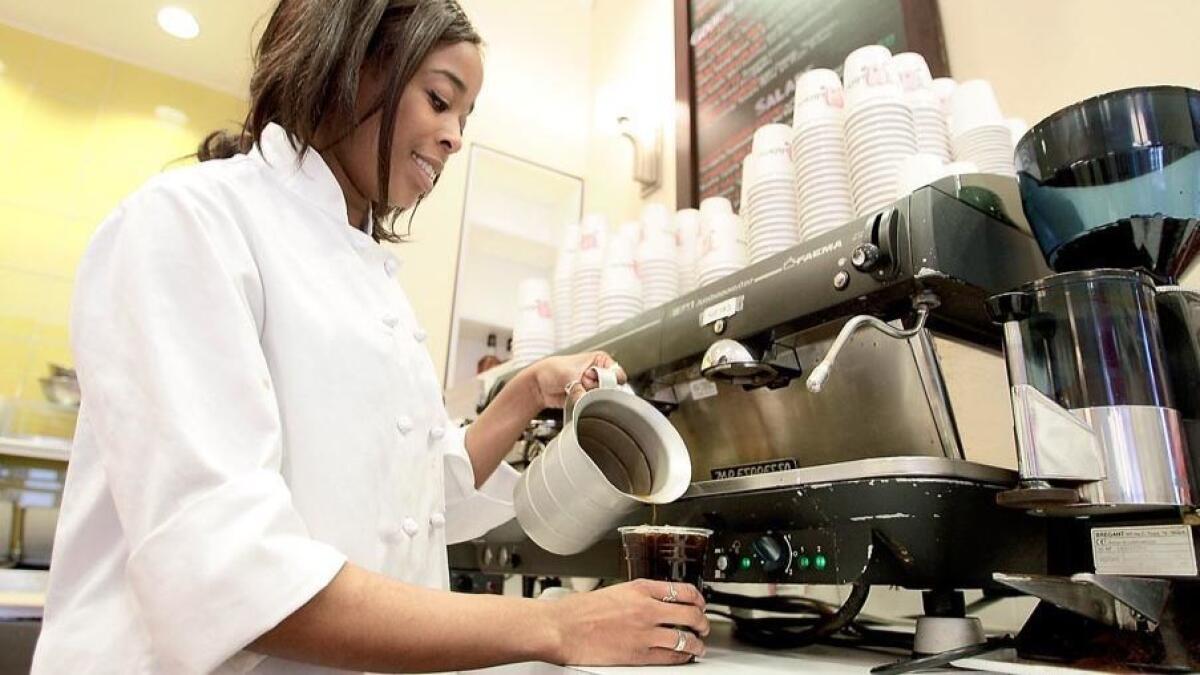FDA to California: Cancer warning labels for coffee would be ‘misleading’

- Share via
There are still parts of the Trump administration that value science, and coffee drinkers in California can be thankful that the Food and Drug Administration is one of them.
On Wednesday, the FDA sent a letter to Sacramento urging the state to put science ahead of the requirements of a controversial ballot initiative and end its war on coffee.
The ubiquitous beverage has been under fire for the better part of a decade. A lawsuit filed in 2010 by the nonprofit Council for Education and Research on Toxics argued that coffee should carry a Proposition 65 warning label because it contains a chemical that may cause cancer. In March, a Los Angeles judge agreed.
The chemical in question is acrylamide. It’s created when coffee beans are roasted at high temperatures, and it’s on the Proposition 65 list of confirmed or suspected carcinogens.
But it doesn’t necessarily follow that coffee poses a cancer risk, FDA Commissioner Scott Gottlieb explained.
“Although acrylamide at high doses has been linked to cancer in animals, and coffee contains acrylamide, current science indicates that consuming coffee poses no significant risk of cancer,“ he wrote on the agency’s website. Indeed, he added, the latest scientific research suggests that coffee may reduce the risk of certain kinds of cancer.
This month, California’s Office of Environmental Health Hazard Assessment, or OEHHA, proposed a plan that would exempt coffee from the Proposition 65 requirement. A final decision is expected by the end of the year.
Wednesday’s letter from the FDA offered a strong endorsement of this plan.
In fact, Gottlieb said, science demands it.
“As a science-based agency, the FDA is committed to ensuring that information being presented on a food’s label is accurate and not misleading,” he wrote. “Simply put, if a state law purports to require food labeling to include a false or misleading statement, the FDA may decide to step in.”
A comprehensive review by the World Health Organization’s International Agency for Research on Cancer concluded that drinking coffee does not cause breast cancer in women, prostate cancer in men, or pancreatic cancer in anybody. After examining more than 1,000 studies, it also found that coffee consumption was associated with reduced risks of liver and endometrial cancers.
Their review determined that evidence for coffee’s potential role in more than 20 other kinds of cancer was “inconclusive.”
All of that is in agreement with the FDA’s own scientific assessment, Gottlieb wrote.
The American Institute for Cancer Research includes coffee on its roster of “foods that fight cancer.” After the Los Angeles judge ruled that coffee should carry a warning label under Proposition 65, the institute observed that the amount of acrylamide needed to cause cancer in rats was far higher than the amount humans consume by drinking coffee.
“There are hundreds of epidemiological studies on coffee and cancer and essentially none suggest increased cancer risk,” Dr. Edward Giovannucci, a professor of nutrition and epidemiology at the Harvard T.H. Chan School of Public Health, wrote for the institute’s blog. “On a ‘cancer worry’ scale from 0 to 10, coffee should be solidly at 0 and smoking at 10; they should not have similar warning labels.”
The current dietary guidelines from the U.S. Department of Agriculture and the Department of Health and Human Services say that a healthful diet can include up to five cups of coffee per day, Gottlieb noted.
Instead of cutting back on coffee, Californians — and others — who want to reduce their risk of cancer and other diseases should limit their consumption of saturated fats, trans fats, sodium and added sugars, he wrote.
Follow me on Twitter @LATkarenkaplan and “like” Los Angeles Times Science & Health on Facebook.
MORE IN SCIENCE







